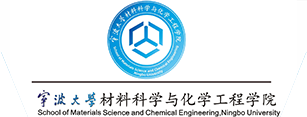Time: 10:00 a.m., Friday, August 16, 2024
Venue: Conference Room 1225, No.1 Laboratory Building, North Campus
Lecturer: Prof. Haihui Wang, Tsinghua University
Lecturer Introduction:
Haihui Wang, Professor of Tsinghua University, graduated from Dalian Institute of Chemical Physics, Chinese Academy of Sciences in 2003 with a PhD degree. D. degree from Dalian Institute of Chemical Physics, Chinese Academy of Sciences in 2003, and worked as a Humboldt Scholar and postdoctoral researcher at the University of Hannover in Germany, and then returned to China in 2007 to join South China University of Technology, and then joined Tsinghua University in November 2020. National High-level Talent Recipient. Prof. Haihui Wang was awarded the Humboldt Scholar in 2003, selected as a young and middle-aged scientific and technological innovation leader by the Ministry of Science and Technology (MOST) in 2015, selected as a Fellow of the Royal Society of Chemistry (RSC) in 2016, awarded the State Council's Special Governmental Allowance in 2018, awarded the Third Scientific Exploration Prize in 2021, and selected as a Coreviva Highly Cited Scholar in 2021. In recent years, he has presided over the National Outstanding Young Scientist Fund, the National Natural Science Foundation of China (NSFC) Key, and the National Key Research and Development Program of the Ministry of Science and Technology (MOST). He was awarded the Second Prize of National Natural Science (2015), the First Prize of Natural Science of Ministry of Education (2019), the First Prize of Natural Science of Guangdong Province (2014) and the Hou Debang Award for Scientific and Technological Innovation in Chemical Industry (2017). Authorized 38 national invention patents. He has published more than 270 papers in academic journals such as Nature Energy, Nature Sustainability, Joule, Science Advance, AIChE Journal, JACS, Advanced Materials, etc., and his papers have been cited more than 20,000 times.
Lecture Summary:
Separation process is one of the most energy-intensive unit operations in chemical processes. Membrane separation technology is recognized as a means that can effectively reduce global energy consumption and pollution emissions due to its high efficiency and energy saving features. Metal-organic skeleton (MOFs) materials can accurately screen gases based on size differences due to their ultra-high porosity and precise pore structure. Therefore MOFs are an ideal membrane material. However, there are still some limitations in the development of MOF membranes, such as their complicated preparation techniques, average separation performance, and unsatisfactory long-term operational stability. To address these problems, by introducing electrochemical methods into the preparation of MOF membranes, we have achieved the purpose of simplifying the operation process, and proposed to modulate the microstructure of MOF membranes, so as to improve the permeability, selectivity and stability of the membranes.



